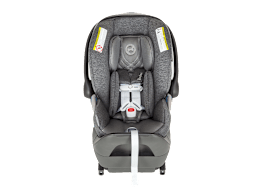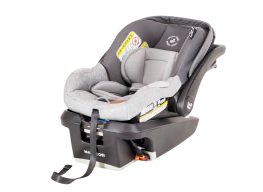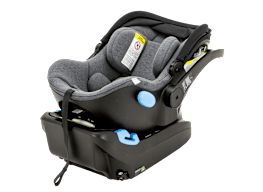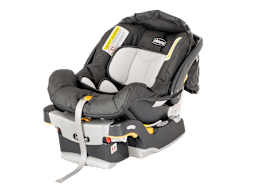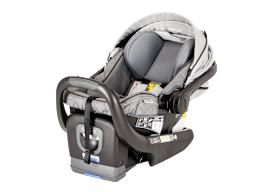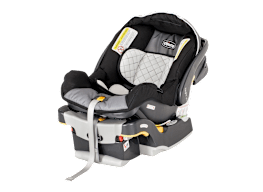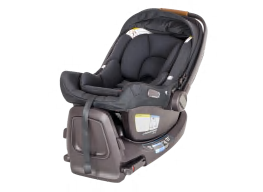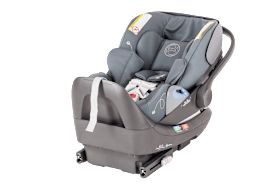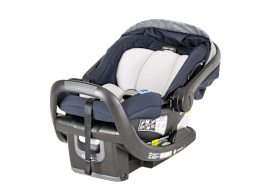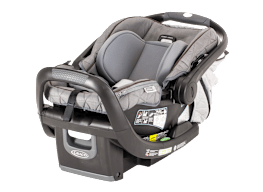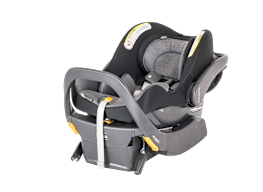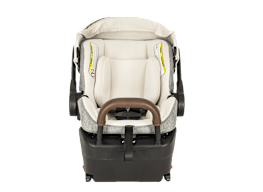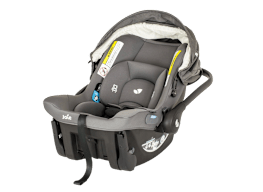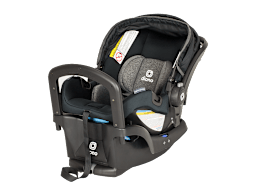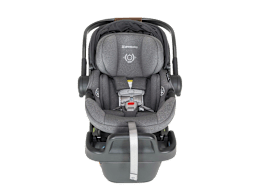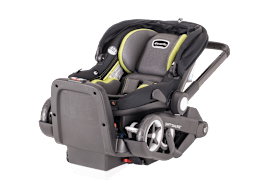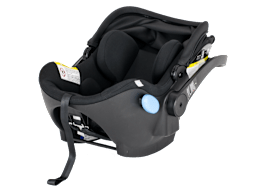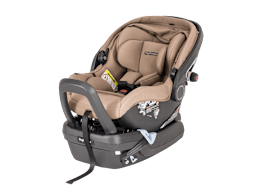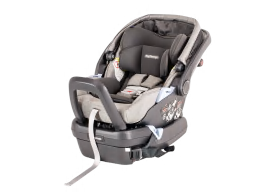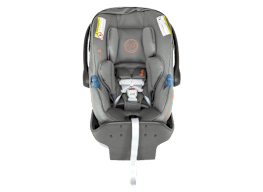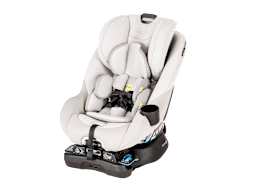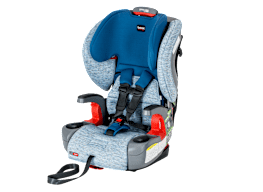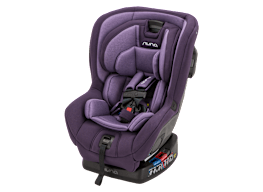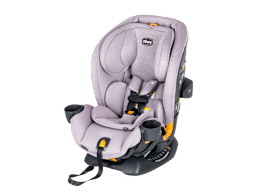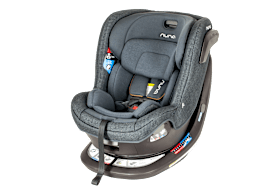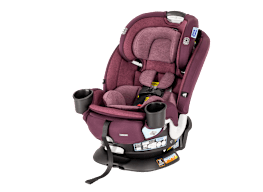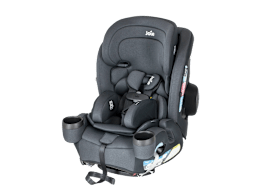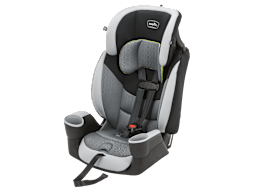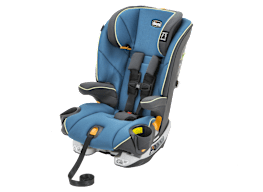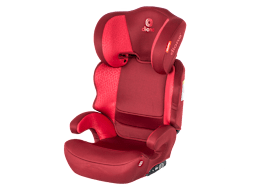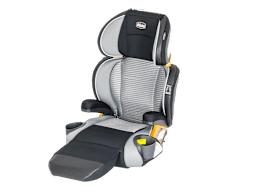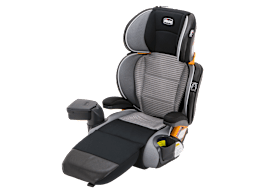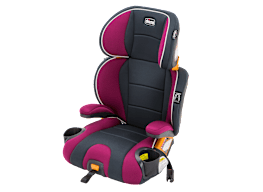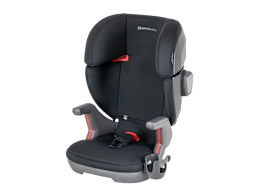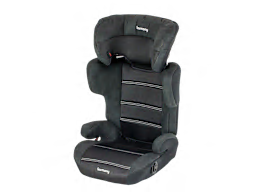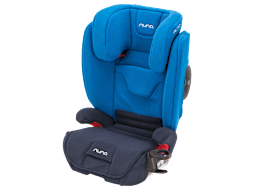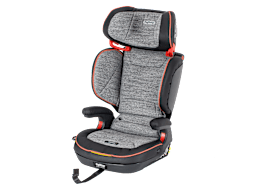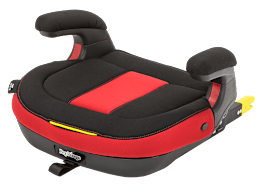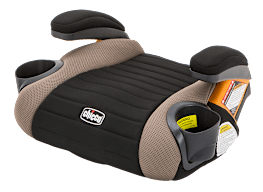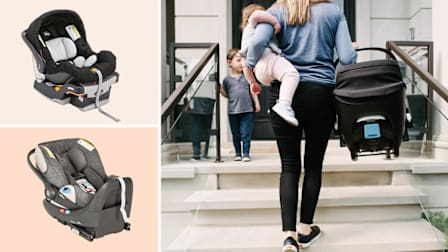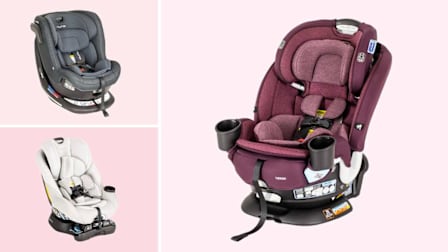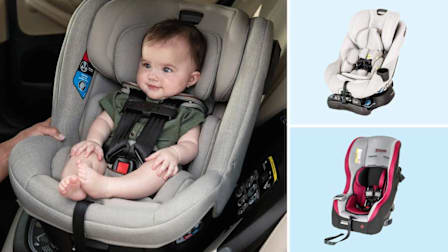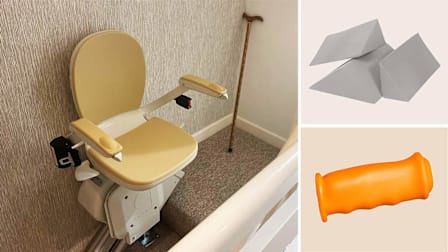How Tariffs Will Affect Baby Gear Prices—and What Parents Can Do Now
Some price increases for strollers, child car seats, and more are already in effect, with major impacts for parents and the baby gear industry
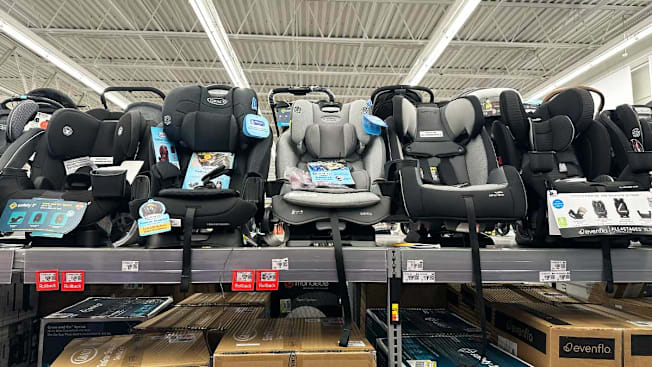
Proposed tariffs on many foreign imports are set to take effect on August 1, and the baby gear industry is already feeling the impact. From steep price hikes to low inventory, baby gear brands and families face a consumer landscape marked by uncertainty and volatility.
The majority of essential baby gear items, like car seats, strollers, and cribs, are produced in China, which currently stands at a tariff rate of 30 percent. But because inventory orders need to be fulfilled in advance, the new tariffs have already increased the cost of production for manufacturers that produce baby gear in Chinese factories, or even just outsource some of their components. As a result, many baby gear companies are absorbing higher manufacturing costs, reworking their production strategy, passing costs on to consumers—or a combination of all of the above.
How Baby Gear Companies Are Responding to Tariffs
“In just the last few months, prices have risen on more than 3,000 baby products across our platform," says Molly Goodson, vice president of media and brand at Babylist. “On average, those items are up 17 percent, with some strollers and car seats jumping by 30 to 40 percent.” Goodson says Babylist has heard from families who waited weeks for a car seat to restock, only to see the price go up by $100. One popular stroller increased by $300 overnight. “These kinds of unexpected jumps are creating real financial and emotional stress at a time when parents are already stretched thin,” Goodson says.
A new report from the Senate Joint Economic Committee found that since tariffs were announced, parents in the U.S. are paying about $98 more per item for baby gear such as strollers, car seats, and baby monitors, a 24 percent price increase.
Other baby gear brands are looking to move more manufacturing to the U.S. Dorel Juvenile USA, the parent company of Maxi-Cosi, Safety 1st, and Cosco Kids, operates a facility in Indiana where their car seats are manufactured or assembled using domestic and foreign components, according to a company statement. “Our operations support American jobs and ultimately allow us to increase production in response to increased consumer demand for domestically made products.”
For international brands looking to enter the U.S. market, tariffs create additional challenges. “The whole situation with the tariffs makes it harder for new brands to introduce themselves on the U.S. market, partly because they make it more expensive to bring the products to the American consumer, which does affect the product price, but also of the uncertainty of not knowing how and when the tariffs will change next time,” says Daniel Lundgren, safety and compliance manager at Axkid, a car seat company based in Sweden. “This creates a risky situation, which in the end may force new brands to close down the U.S. market introduction.”
“Tariffs make it harder for newer or niche brands to compete. This could lead to a less diverse, less innovative baby gear market, which would hurt families who benefit from specialized options tailored to different needs, budgets, and lifestyles,” Goodson says.
The effects of tariffs go beyond strollers and car seats to other baby items, says Jennifer Kinka, president and founder of Nesting House, a baby gear showroom and shop in Philadelphia. “I think where the impact will be is on the smaller items that need to get replenished on a regular basis, such as clothing, body products, or even age-appropriate playthings.” Just like with the ongoing increases in the cost of groceries, rising prices over time on everyday products can create more long-term stress for parents, says Kinka.
Pushback on Tariffs: Will There Be an Exemption for Baby Gear?
There’s been significant pushback on tariffs from companies, industry associations, and lawmakers. In a press conference on July 23, Representative Jimmy Gomez (CA-34) and other members of the Congressional Dads Caucus introduced a package of six bills, called the "Babies Over Billionaires" agenda, that would exempt essential baby products from tariffs.
“As a dad, I know that children are expensive, as most Americans do... So these bills are meant to provide tax relief; remove the taxes and the tariffs on baby products, everything from clothing to formula to cribs and strollers,” said Rep. Gomez.
The bill package is the latest step in an ongoing fight for a baby gear exemption from tariffs. In February, the Baby Safety Alliance, formerly known as the Juvenile Products Manufacturers Association, published an open letter to the Trump administration calling for an exemption to tariffs on baby gear to reduce the burden of future high prices on parents and caregivers. In April, nearly 50 members of the U.S. House of Representatives issued a statement opposing price increases on essential baby gear. That same month, Babylist and 12 baby industry leaders ran a full-page ad in The Washington Post, calling for an “immediate reprieve from tariffs on essential baby products.”
“Tariffs stifle innovation and limit consumer choice. The baby industry is full of smaller brands who love families and want to support them with the best products, but these businesses don’t have the resources to absorb cost increases or reconfigure supply chains quickly,” says Goodson of Babylist.
Though tariffs were announced to encourage more American manufacturing, small or midsized brands may not own their own production facilities, instead outsourcing some or all of their production to China. Suddenly picking up and moving all production to the U.S. would require a massive investment of capital to build their own factories, production lines, and labor force, as well as setting up the regulatory compliance and quality control checks necessary to produce specialized baby gear like car seats.
The volatility of changing tariffs makes it even harder for companies to plan and invest, says Lisa Trofe, executive director of the Baby Safety Alliance. “Instead of innovating, researching, and developing new product options for parents, baby products manufacturers are trapped in a cycle of uncertainty characterized by repeatedly replanning and pivoting to ensure they can continue to provide parents with access to safe and affordable baby products. Some companies will find this cycle unsustainable sooner than others and be forced to exit the market, narrowing the range of options available to parents.”
That volatility and lack of options also means it’s likely parents will be forced to pay more for the products they need. “Absent an exemption and investment in American manufacturing of these products, these tariffs will force families to pay even more to purchase these products, which are essential to care for young children and keep them safe,” wrote Representatives Kelly Morrison, D-Minn., Sarah McBride, D-Del., and Rashida Tlaib, D-Mich., along with their colleagues, in a letter to Commerce Secretary Howard Lutnick.
Child car seats, in particular, are legally required for children traveling in vehicles in all 50 states, and the lawmakers argue that “families should not have to pay more to comply with the laws that help keep their babies and toddlers safe.”
“The most direct solution is a broad exemption from tariffs for all juvenile products. This show of support to American families would be the most pro-family action the administration can make,” says Trofe.
There’s precedent: When tariffs were levied in 2018 under the first Trump administration, the U.S. trade representative exempted some of these products from those tariffs, helping to insulate families from higher costs.
How Tariffs on Baby Gear Affect Parents
For many families, the economic landscape is already unfriendly, thanks to ongoing inflation, a continuing child care crisis, high housing costs, and a lack of federal paid parental leave. At a time when the cost of having a baby is growing exponentially, higher tariffs feel like a pile-on. In The Washington Post ad, Babylist founder and CEO Natalie Gordon called it a “baby tax” on U.S. families.
A July 2025 survey from Babycenter reports that the cost of raising a child in the U.S. today has risen 2 percent in the last six months.
Babycenter found that the prices of baby gear alone jumped 20 percent in that time period. Families are now looking at spending an average of $20,745 per child in the first year alone. A survey from earlier this year found that 37 percent of expecting parents surveyed said they were worried about finances, and 25 percent said they had decided to have fewer children because of the high cost. Price changes in big-ticket baby items like strollers and car seats are well outpacing inflation, the July survey shows.
Further price increases can stretch a family’s budget to the breaking point. If families are unable to afford the essentials they need, they may be more likely to use secondhand baby gear, which can be risky, according to baby product safety experts.
“The results can be devastating when families are forced to rely on secondhand or older products that do not meet current safety standards, makeshift alternatives that create risks, or even going without protective products at all,” says Trofe.
“Without immediate tariff relief for baby gear, the financial burden will continue to ultimately fall on American families who are simply trying to meet their children’s basic needs,” Trofe says.
What Parents Can Do Now
If you’re concerned about the potential rising costs of baby gear, here are a few ways to save money on bigger purchases.
Don’t panic shop, but consider buying now. Prices have already started to rise across baby gear like strollers, car seats, and cribs, but tariffs on Chinese imports aren’t set to take effect until early July. Some brands, like Stokke, Skip Hop, and Chicco, are holding off on price increases until later this summer. If you’ve got some big items already picked out on your baby registry, it could be worthwhile to buy those sooner rather than later. Our guide to scoring deals on baby products can help, and so can our Deals hub.
Streamline your priorities. “Prioritize purchasing a product that ensures your child has a safe place to sleep and a car seat in which to transport them safely,” Trofe says, which can help you stay focused on the big picture. She suggests researching the product category well before purchasing and choosing products that grow with your child, like an all-in-one car seat.
Save the date for big sales. If you have the flexibility to time your purchases, wait for larger sales to help soften the sticker price. Companies and large retailers often hold sales around big holidays, and Amazon’s semi-annual Prime Day in July and October usually mean that other retailers have competing sales around that time, too.
Encourage group gifting. When you’re registering for a pricier product, offer group gifting to crowdsource these larger purchases. Babylist offers a “Group Gift” toggle bar that lets friends and family contribute what they wish toward that stroller you’ve got your eye on.
Be careful with buy now, pay later programs. Though it may seem like a safe and simple way to put off paying for that big purchase, CR experts warn against using these payment plans that let you spread out bills over weeks or months. Some have hidden fees or can come with potential credit score pitfalls, which can make that pricey purchase even more expensive in the long run.
Look into rentals. In some cases, you can rent the pricier items you might only use for a short time, like a Snoo bassinet or a travel crib you might only need for longer trips.
Seek out free options. Some state health departments feature programs that offer families free car seats. Check to see the offerings in your state and eligibility requirements here.
Be cautious about buying secondhand. Some baby items, like clothes, books, and toys, are generally safe to buy secondhand or receive as hand-me-downs. But safety-focused gear like strollers, bouncers, cribs, crib mattresses, car seats, and high chairs could be risky, as the item may have been previously recalled, have updated safety standards, or have structural problems like sagging that may make it no longer safe to use. It’s best to buy these must-haves new if you’re able. But, Trofe says, “if it becomes essential for the safety and care of your child to use secondhand products or reuse products from a previous child, always check cpsc.gov/recalls to be sure it hasn’t been recalled.” Calling the manufacturer’s customer service line is another good bet if you need replacement parts, instructions, or labels, she says.
Editor’s Note: This article, originally published April 4, 2025, has been updated with additional information about how baby gear brands are responding to tariffs. It also provides details for parents and caregivers about price increases and how to save money on baby gear impacted by tariffs.

